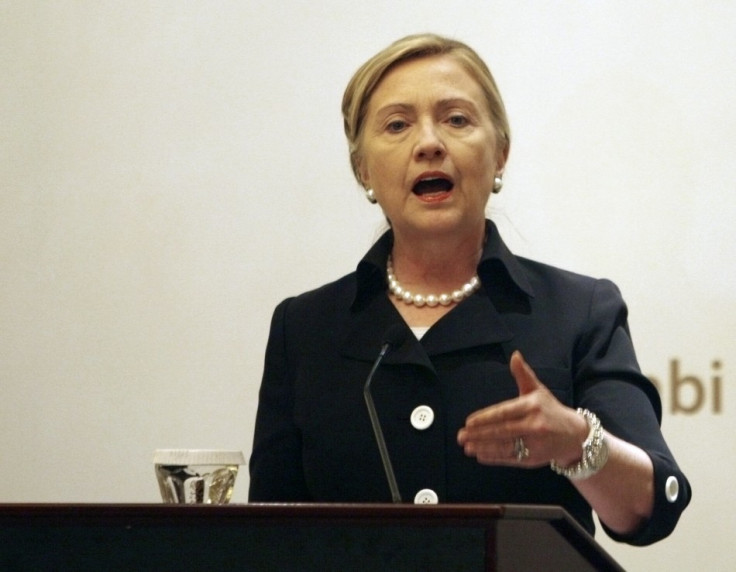How can Hilary Clinton compare South Korea to Afghanistan?

Aiming to convince senators of the viability of the Barack Obama administration's Afghanistan policy, Secretary of State Hillary Clinton yesterday cited South Korea as a successful "investment" case. "You look at the decades of our investment in South Korea," she said, facing a barrage of questions in a meeting of the Senate Foreign Relations Committee aimed at clarifying Washington's policy and progress in Afghanistan and Pakistan.
Her testimony came a day after Obama announced a plan to bring home 10,000 troops in Afghanistan by the end of this year and 23,000 more by the end of next summer, heralding a major shift in the 10-year war there. The U.S however, will still keep 68,000 troops in the country.
Clinton called for a long-term view to counter worries over huge costs and growing casualties. "I think it's important for us to maybe take a step back and look at other countries that the United States made investments in over long periods of time," she said.
She pointed out tens of thousands of American troops have been stationed in South Korea since the 1953 armistice that effectively ended a war between the two Koreas and currently, around 28,000 US soldiers are stationed on the peninsula.
"You look at the coups that took place, you look at the stop-and-start efforts of democracy, you look at the massive corruption, you look at the thousands of American troops that we kept there, and we not only provided military protection against North Korea, we also, in effect, helped to model and support what is now a vibrant democracy and a very strong economy," Clinton stressed.
She added the effort has been in Washington's strategic interests and in concert with American values. Mrs Clinton's comparison however is misplaced as South Korea and Afghanistan have a very different attitude when it comes to the U.S.
South Korea has been a U.S. ally for over 40 years. It has contributed to over 300,000 troops to the Vietnam War, is the third largest troop contributor in Iraq, and even lost a soldier in Afghanistan. The U.S intervened in South Korea as North Korean occupied various key southern cities and looked like it would have little resistance in capturing the entire peninsula.
On the other hand, the U.S invaded Afghanistan without the population's consent. They ousted the Taliban and replaced him by Hamid Karzai, who never made the unanimity and is disliked by the population as allegations of corruption have plagued his government. Afghanistan is still a deeply fractioned country and once the U.S pulls out it is likely the Karzai regime will collapse and unlikely that his replacement will actively be a close ally of the U.S.
© Copyright IBTimes 2025. All rights reserved.





















